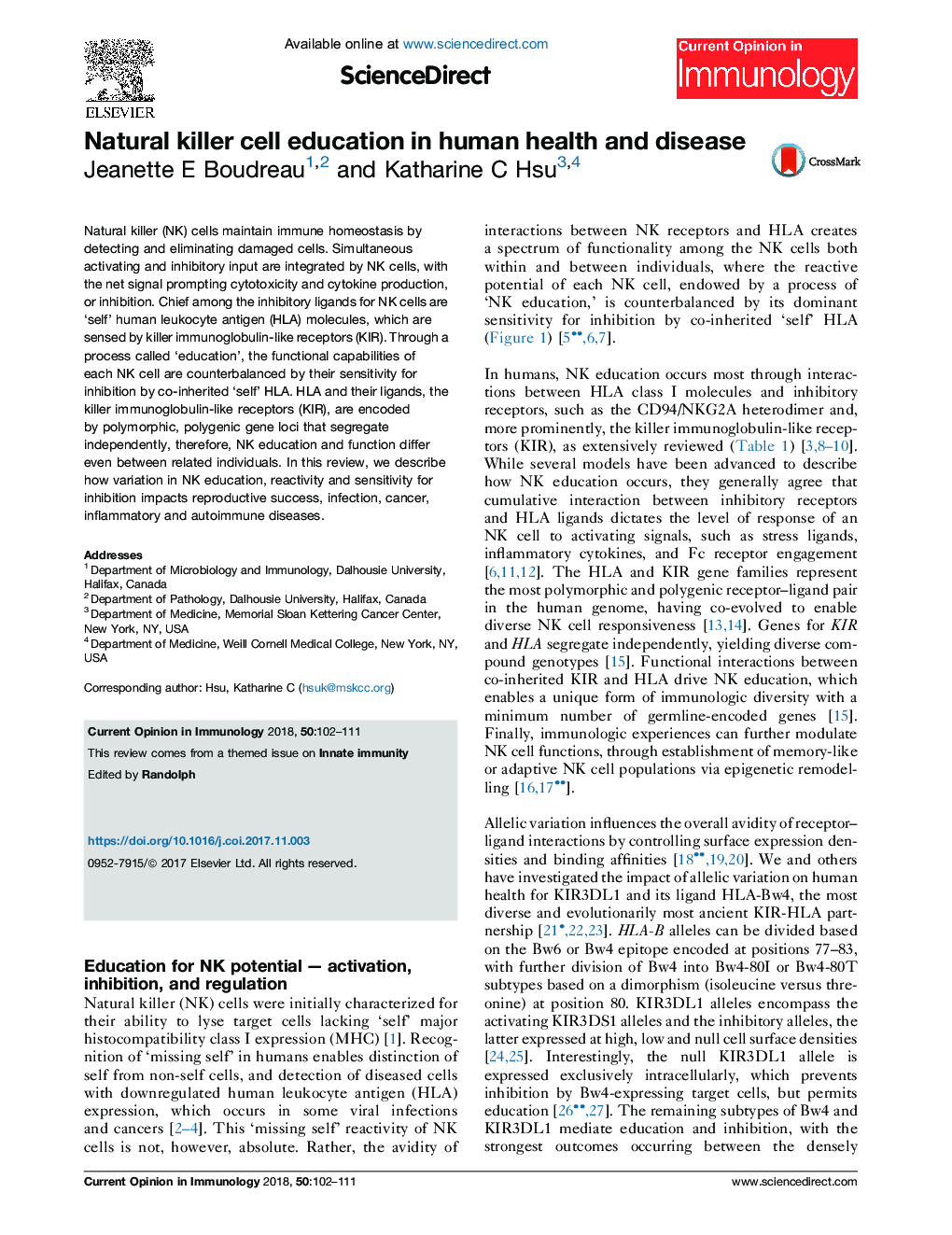| Article ID | Journal | Published Year | Pages | File Type |
|---|---|---|---|---|
| 8737121 | Current Opinion in Immunology | 2018 | 10 Pages |
Abstract
Natural killer (NK) cells maintain immune homeostasis by detecting and eliminating damaged cells. Simultaneous activating and inhibitory input are integrated by NK cells, with the net signal prompting cytotoxicity and cytokine production, or inhibition. Chief among the inhibitory ligands for NK cells are 'self' human leukocyte antigen (HLA) molecules, which are sensed by killer immunoglobulin-like receptors (KIR). Through a process called 'education', the functional capabilities of each NK cell are counterbalanced by their sensitivity for inhibition by co-inherited 'self' HLA. HLA and their ligands, the killer immunoglobulin-like receptors (KIR), are encoded by polymorphic, polygenic gene loci that segregate independently, therefore, NK education and function differ even between related individuals. In this review, we describe how variation in NK education, reactivity and sensitivity for inhibition impacts reproductive success, infection, cancer, inflammatory and autoimmune diseases.
Related Topics
Life Sciences
Immunology and Microbiology
Immunology
Authors
Jeanette E Boudreau, Katharine C Hsu,
